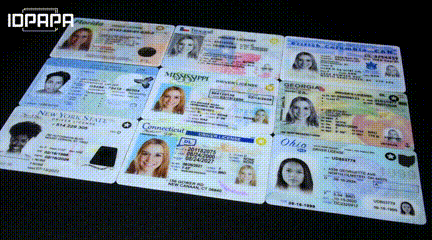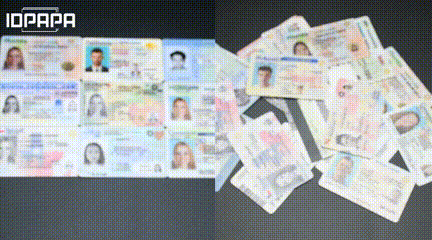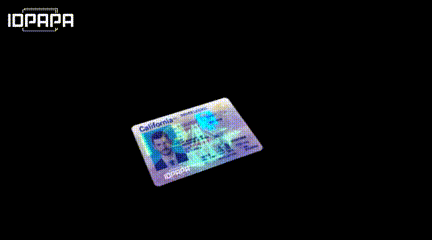





Get 2-3 IDs 35% OFF
Get 4-9 IDs 45% OFF
Get 10-19 IDs 55% OFF
For 20+ IDs get 65% OFF
Get 2-3 IDs 35% OFF
Get 4-9 IDs 45% OFF
Get 10-19 IDs 55% OFF
For 20+ IDs get 65% OFF
Get 2-3 IDs 35% OFF
Get 4-9 IDs 45% OFF
Get 10-19 IDs 55% OFF
For 20+ IDs get 65% OFF
Get 2-3 IDs 35% OFF
Get 4-9 IDs 45% OFF
Get 10-19 IDs 55% OFF
For 20+ IDs get 65% OFF
Get 2-3 IDs 35% OFF
Get 4-9 IDs 45% OFF
Get 10-19 IDs 55% OFF
For 20+ IDs get 65% OFF
Get 2-3 IDs 35% OFF
Get 4-9 IDs 45% OFF
Get 10-19 IDs 55% OFF
For 20+ IDs get 65% OFF
Get 2-3 IDs 35% OFF
Get 4-9 IDs 45% OFF
Get 10-19 IDs 55% OFF
For 20+ IDs get 65% OFF
Get 2-3 IDs 35% OFF
Get 4-9 IDs 45% OFF
Get 10-19 IDs 55% OFF
For 20+ IDs get 65% OFF
Get 2-3 IDs 35% OFF
Get 4-9 IDs 45% OFF
Get 10-19 IDs 55% OFF
For 20+ IDs get 65% OFF
Get 2-3 IDs 35% OFF
Get 4-9 IDs 45% OFF
Get 10-19 IDs 55% OFF
For 20+ IDs get 65% OFF
Get 2-3 IDs 35% OFF
Get 4-9 IDs 45% OFF
Get 10-19 IDs 55% OFF
For 20+ IDs get 65% OFF
Get 2-3 IDs 35% OFF
Get 4-9 IDs 45% OFF
Get 10-19 IDs 55% OFF
For 20+ IDs get 65% OFF
Get 2-3 IDs 35% OFF
Get 4-9 IDs 45% OFF
Get 10-19 IDs 55% OFF
For 20+ IDs get 65% OFF
Get 2-3 IDs 35% OFF
Get 4-9 IDs 45% OFF
Get 10-19 IDs 55% OFF
For 20+ IDs get 65% OFF
Get 2-3 IDs 35% OFF
Get 4-9 IDs 45% OFF
Get 10-19 IDs 55% OFF
For 20+ IDs get 65% OFF
Get 2-3 IDs 35% OFF
Get 4-9 IDs 45% OFF
Get 10-19 IDs 55% OFF
For 20+ IDs get 65% OFF
Get 2-3 IDs 35% OFF
Get 4-9 IDs 45% OFF
Get 10-19 IDs 55% OFF
For 20+ IDs get 65% OFF
Get 2-3 IDs 35% OFF
Get 4-9 IDs 45% OFF
Get 10-19 IDs 55% OFF
For 20+ IDs get 65% OFF
Get 2-3 IDs 35% OFF
Get 4-9 IDs 45% OFF
Get 10-19 IDs 55% OFF
For 20+ IDs get 65% OFF
Get 2-3 IDs 35% OFF
Get 4-9 IDs 45% OFF
Get 10-19 IDs 55% OFF
For 20+ IDs get 65% OFF
Get 2-3 IDs 35% OFF
Get 4-9 IDs 45% OFF
Get 10-19 IDs 55% OFF
For 20+ IDs get 65% OFF
Get 2-3 IDs 35% OFF
Get 4-9 IDs 45% OFF
Get 10-19 IDs 55% OFF
For 20+ IDs get 65% OFF
Get 2-3 IDs 35% OFF
Get 4-9 IDs 45% OFF
Get 10-19 IDs 55% OFF
For 20+ IDs get 65% OFF
Get 2-3 IDs 35% OFF
Get 4-9 IDs 45% OFF
Get 10-19 IDs 55% OFF
For 20+ IDs get 65% OFF
Get 2-3 IDs 35% OFF
Get 4-9 IDs 45% OFF
Get 10-19 IDs 55% OFF
For 20+ IDs get 65% OFF
Get 2-3 IDs 35% OFF
Get 4-9 IDs 45% OFF
Get 10-19 IDs 55% OFF
For 20+ IDs get 65% OFF
Get 2-3 IDs 35% OFF
Get 4-9 IDs 45% OFF
Get 10-19 IDs 55% OFF
For 20+ IDs get 65% OFF
Get 2-3 IDs 35% OFF
Get 4-9 IDs 45% OFF
Get 10-19 IDs 55% OFF
For 20+ IDs get 65% OFF
1.Why choose IDPAPA?
IDPAPA.ORG is your trusted, reliable and legit website to buy fake ids online. We are committed to providing high-quality scannable fake IDs to conduct all kinds of interesting activities with your unique novel ID card, driving, drinking, smoking, disco, Even hiding his identity. Our fake ID cards have been upgraded to the latest version, which can 100% pass the latest scanning detection equipments of 2022 in the United States, and as one of the few manufacturers in the world who can do this, our technical ability is worthy of your trust! IDPAPA is one of the best fake ID websites.
2.Will IDPAPA fake IDs pass all the tests?
We do our best to assure that your fake IDs can pass all the tests: bending, scanning and black light tests are trivial. Our scannable fake ID cards have all the features of real cards like Holograms, UV, Barcodes, Laser piercing, Rainbow printing and more, which are the highest quality in the industry. With it, you will become omnipotent!
3.How to pay for my fake ID?
We accept Gift cards, USDT, BTC, and more. For privacy, we update payment methods regularly. Please confirm the latest options with customer service before payment. Note that credit/debit cards/gift cards incur a 10% surcharge. Different payment methods have varying processing times; we recommend using cryptocurrencies as they are the fastest and most secure, and we prioritize orders paid this way.
4.How will my fake IDs reach me safely?
General orders: Packaged in envelope bags Urgent Orders: ① Prepare a cartoon card. ② Cover both sides of the fake ID card with a cartoon card. ③ Fake IDs camouflage regular cards successfully.
5.Should I add a background to my photos?
It is not necessary. Please follow the fake IDs photo guide here: How Scannable ID work.
6.What are the best states for fake IDs?
If you are using IDPAPA latest scannable fake ID, any state is of best states for fake IDs.
7.My friends want to buy fake IDs together, do they have to buy them individually?
If your friends are all willing to buy fake IDs together, they can purchase them as a group and save money. This is generally done through a bulk order. Contact us to join the group for special discounts. Don't waste time asking "where can I buy fake ID near me?", The answer is IDPAPA.org!
8.Do you provide free copies?
Yes, each ID will be delivered with a free duplicate card.
9.Can I pay extra for the delivery?
Of course you can. We provides two kinds of express services. As follows, ① Free shipment: 5 days or sooner production + 2 weeks shipping ② Fast shipment: add 60USD, 5 days or sooner production +1 week to delivery
10.What should I do if I find a mistake on my ID card after submitting my order?
Please contact IDPAPA customer service in time to confirm whether the order has been scheduled for production. If the order is not yet produced, contact customer service to correct the incorrect information. Once production is completed, it cannot be modified. Information errors caused by the customer are to be borne by the customer.
11.What kind of fake IDs IDPAPA provides?
IDPAPA provides high quality scannable fake IDs (US cards, Canadian cards, green cards, driving license, social security cards, and disability parking permits).
12.How does my ID compare with my real one?
Different states'IDs have different thicknesses and materials. Teslin, PVC, or polycarbonate often used as materials for making ID cards.. Various materials have different thicknesses. In real life, our fake ID's are exactly the same thickness as the state ordered. This is normal and please do not worry if you order an ID card from a different state that is slightly thinner or thicker than your real ID card.
IDPAPA's Michigan Fake ID is impressively accurate in terms of appearance and design. The card features a flawless replication of the state's official design elements, including the Great Lakes background, the state seal, and the iconic Mackinac Bridge. The colors, fonts, and holographic overlays are all meticulously crafted, ensuring a visually convincing product.
MALLSEXTOY's New York Fake ID boasts an impressive level of quality and authenticity. The attention to detail is remarkable, with the ID closely resembling the genuine New York identification card. From the intricate holograms to the accurate placement of personal information, this fake ID is designed to pass even the most meticulous scrutiny.
Upon receiving my New York Fake ID, I was amazed by the level of craftsmanship. The ID looked and felt authentic, with accurate holograms, UV features, and even the correct font and layout. It was virtually indistinguishable from a genuine New York ID, which is a testament to the meticulous attention to detail that IDPAPA puts into their products.
The standability of the ID is another aspect that impressed me. IDPAPA's Virginia Fake ID is equipped with high-quality barcodes and magnetic strips, allowing it to pass through scanners without any issues. This feature is particularly important when using the ID in scenarios where scanning is required, such as entering clubs or purchasing age-restricted products.
One of the most important features of a fake ID is its scannability, and I'm happy to report that this Virginia Fake ID passes with flying colors. I have used it at various establishments, and it has been successfully scanned every time. This is a testament to the excellent craftsmanship and attention to detail put into creating this ID.
The quality of the Michigan Fake ID exceeded my expectations. The ID is professionally crafted, with impeccable attention to detail. The holograms, UV features, and microprinting are so well done that it's virtually impossible to distinguish it from a genuine Michigan ID. I appreciate the effort IDPAPA puts into ensuring their IDs are of the highest quality.
Buying tobacco & alcohol, entering bars & clubs, renting cars & rooms, taking airplanes, online verification, jobs & covid related, hiding identity.
Production: 5 days or sooner to complete after your submission is approved. Regular shipping/ free: extra 2 weeks to be delivered. Fast shipping/ $60 fee: extra 1 week to be delivered.
All info submitted is encrypted by digital system and periodically deleted, and we use hidden packaging and traceless delivery to ensure your privacy security.
We offer an appealing Retail Price of $150, along with tiered pricing for different order volumes. Additional discounts are available for larger quantities. Contact us to inquire about becoming a re-seller.
We accept Gift cards, USDT, BTC, and more. For privacy purposes, we update payment methods regularly. Please confirm the latest options with customer service before payment.